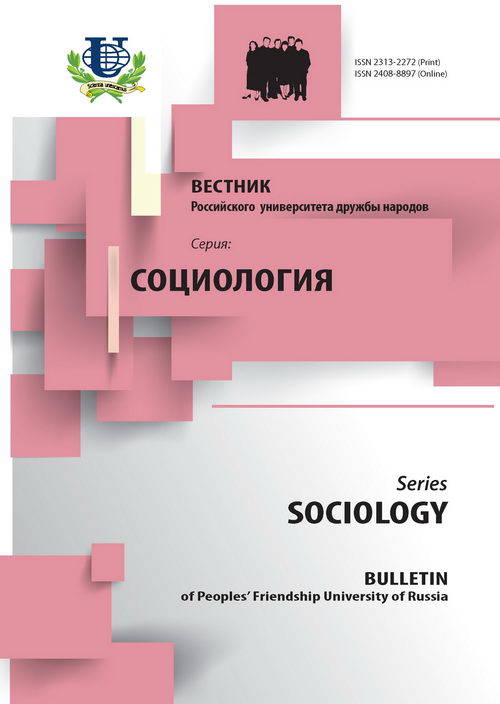Среднее специальное образование в оценках и мнениях выпускников ссузов
- Авторы: Гаспаришвили А.Т.1
-
Учреждения:
- Институт социологии РАН
- Выпуск: Том 16, № 1 (2016)
- Страницы: 92-110
- Раздел: Массовые опросы, эксперименты, кейс-стади
- URL: https://journals.rudn.ru/sociology/article/view/6529
- ID: 6529
Цитировать
Полный текст
Аннотация
Статья подготовлена на основе материалов проекта «Образование, рынок труда и социальное поведение молодежи в современной экономической ситуации», в рамках которого было проведено социологическое исследование, посвященное проблемам профессиональных ориентаций и планов выпускников российских средних специальных учебных заведений (ссузов). В ходе исследования выпускники объясняли, чем обусловлен их выбор профессии, что повлияло на этот выбор, делились своими планами относительно того, чем они собираются заниматься после завершения учебы, высказывали свое мнение о качестве полученного образования и необходимом уровне образования для успеха в жизни. Судя по данным исследования, студенты имеют серьезные мотивации к получению высшего образования, которое поможет им стать более конкурентноспособными на рынке труда. Для большинства из них система среднего специального образования является промежуточным, «вспомогательным» этапом в планируемой жизненной траектории. Эмпирические данные, полученные в результате проведенного исследования, также свидетельствуют о существенных различиях в мотивациях отдельных категорий изучаемой группы молодежи. Среди прочего студенты ссузов, получающие медицинское и педагогическое образование, демонстрируют большую приверженность морально обосновываемым ценностям служения обществу в отличие от ориентированных на работу в коммерческом секторе, сфере обслуживания и т.д. Материалы статьи могут быть полезны при планировании и корректировке государственной и ведомственной политики в области среднего специального и высшего профессионального образования.
Об авторах
Александр Тенгизович Гаспаришвили
Институт социологии РАН
Автор, ответственный за переписку.
Email: Gasparishvili@gmail.com
Список литературы
- Все, что нужно знать о поступлении в вузы в 2015 году // URL: http://www.aif.ru/ dontknows/about/vsyo_chto_nuzhno_znat_o_postuplenii_v_vuzy_v_2015_godu.
- Д. Ливанов: нужно поднимать репутацию среднего профессионального образования // URL: http://www.menobr.ru/news/44195.
- Клячко Т.Л. Основные тенденции развития российской системы образования // Ректор вуза. 2013. № 4.
- Константиновский Д.Л., Вахштайн В.С., Куракин Д.Ю. Реальность образования. Социологическое исследование: от метафоры к интерпретации. М.: ЦСП, 2013.
- Образование в Российской Федерации: 2014: стат. сб. М.: НИУ ВШЭ, 2014.
- План по совершенствованию профобразования доработают // URL: http://er.ru/news/127275.
- Специалисты отмечают рост интереса выпускников школ к среднему специальному образованию // URL: http://www.dp.ru/a/2012/06/26/Kadri_dlja_rinka_truda_-_2.
- Среднее специальное оставят без высшего // Коммерсант. 2015. № 117.
Дополнительные файлы













